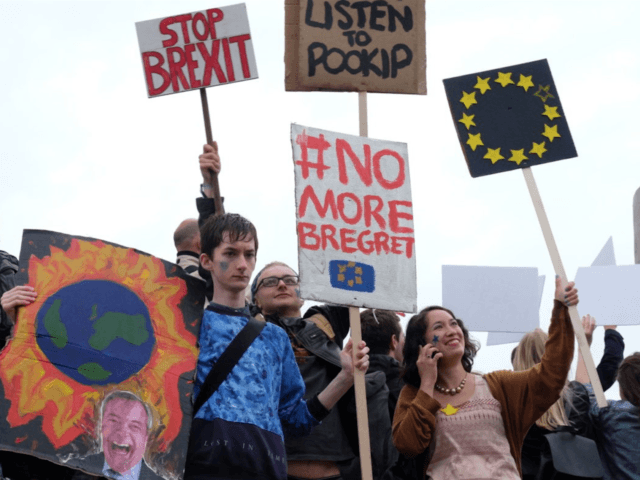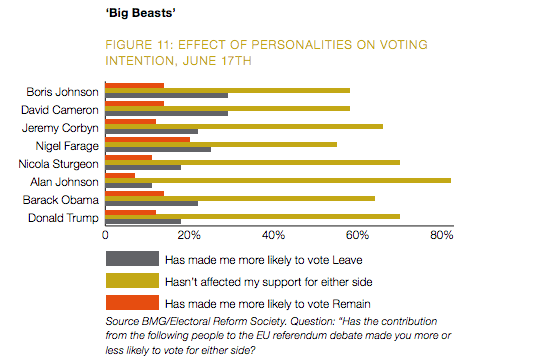The Electoral Reform Society (ERS) has published a report demanding establishment institutions have far-reaching new powers to control future referendum campaigns, including the ability to silence those they consider “misleading”.
The report has made for numerous anti-Brexit headlines this morning, implicitly questioning the validity of the referendum result.
“’Glaring deficiencies’ in EU debate, Electoral Reform Society says”, announced the BBC. “Electoral reform campaigners slam ‘dire’ EU referendum debate”, said Guardian. “Public felt ill-informed in EU referendum campaign, says reform society”, claimed Reuters.
The ERS even retweeted an article titled: “Ten things we should do to avoid the mistakes of the EU referendum”, (emphasis added).
Katie Ghose, Chief Executive of the ERS, said: “This report shows without a shadow of a doubt just how dire the EU referendum debate really was. There were glaring democratic deficiencies in the run-up to the vote, with the public feeling totally ill-informed.”
The ERS is part funded by the left-wing Joseph Rowntree Foundation, which has also funded the group CAGE, who have been described as a “shady Salafi PR outfit” and are accused of pandering to Islamist terrorism, and Operation Black Vote, who released posters depicting ‘Leave’ voters as racist skinheads during the referendum campaign.
They may also have a vested interest in parts of the UK’s electoral system.
Documents obtained by the Spectator in 2011 purported to “reveal that [the ERS] is the majority shareholder in Britain’s leading supplier of election services” with the magazine describing the organisation as the “political wing of Britain’s leading ballot-services business”.
The think tank’s report reiterated the demands of many anti-Brexit campaigners, including calling for the vote to be extended to 16-year-olds – a demographic well known for being exceptionally “progressive” and globalist.
The proposed raft of new measures and powers would be handed, primarily, to the Electoral Commission, potentially handing the establishment further power to control public discourse before referendums.
“An official body – either the Electoral Commission or an appropriate alternative – should be empowered to intervene when overtly misleading information is disseminated by the official campaigns,” they say.
The Electoral Commission could also run an official fact-checking website, to push the official view, and “publish an official ‘rulebook’ setting out the timetable, rules for campaigners and all other technical aspects of the vote” to act as a “bible” for the campaign.
“All referendums should have a minimum six-month regulated campaign period” they also demand, claiming this will help the public “get to grips with the issues and make a low-information, low-deliberation referendum campaign less likely”.
The think tank seized upon anecdotes widely employed by ‘Remain’ campaigners – such as the fact there was a spike in people Googling ‘what is the EU’ after the vote – as evidence that their recommendations are needed.
They also insist that personality politics, or ‘big beast’ politicians like Boris Johnson, played too much of a role. However, “according to our polling, the effect of big personalities on voters’ intentions was surprisingly minimal” they added.
Interestingly, according to a poll included in the report, David Cameron was around twice as likely to make people vote ‘Leave’ than for his favoured side, ‘Remain’.
However, Nigel Farage was slightly more likely to make people vote ‘Leave’ than ‘Remain’, making him one of the only personalities who appeared to have the desired effect on their audience, alongside Boris Johnson and Donald Trump.



COMMENTS
Please let us know if you're having issues with commenting.